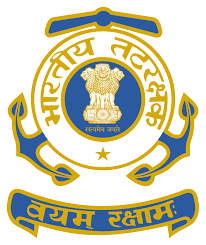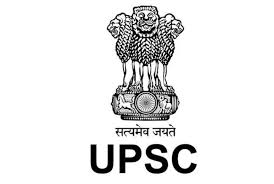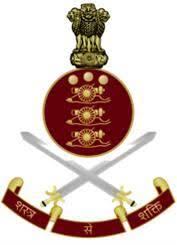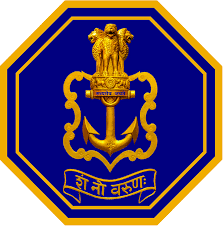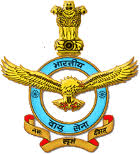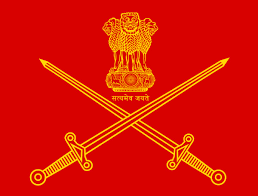Indian Coast Guard Assistant Commandant Recruitment 2025 Syllabus
The selection process for the group's A Published Officer position as the Assistant Commandant was recently made available by the Indian Coast Guard. The choice to go into the military depends on status. It is certainly not simple to successfully complete every selection step. In order the Indian Coast Guard Assistant Commandant hiring, and applicants needs to properly prepared. Planning needs a knowledge of the topic at hand and the structure of the examination. You are going to may find information about the latest and most recent Indian Coast Guard Assistant Commandant Curriculum & Examination Format in this post.
- The previously CGCAT, the PSB, FSB, Physical Examination, and Introduction are the main steps in the Indian Coast Guard Assistant Commandant Selection Process.
- It was CGCAT is a 400-point based on computers examination with an objective form.
In addition to the various fields included in the ICG Curriculum are the English language, Science in general & Mathematics Abilities, Logic & Numerical Ability, Mechanical, and then Electrical & Electronics, and General Information. You can look at the list below to learn about the topics in more detail.
|
ICG Assistant Commandant Syllabus
|
| Subjects |
Topics
|
|
English Language
|
- Unseen Passages.
- Antonyms.
- Idioms & Phrases.
- Tenses.
- Synonyms.
- Vocabulary.
- Articles.
- Verb.
- Fill in the Blanks.
- Adverb.
- Grammar.
- Active & Passive Voice.
- Transformation of Sentences.
|
|
Reasoning
|
- Figural Analogy
- Drawing inferences
- Clocks and Calendars
- Number Series
- Embedded figures
- Mathematical Reasoning
- Statements and Arguments
- Blood relation
- Similarities and differences
- Coding and de-coding
- Alphabet Series
- Linear and Circular Sitting Arrangements
- Puzzles, etc
|
|
Quantitative Aptitude
|
- Number System
- Percentage
- Average
- Time, Distance, Work
- Profit and Loss
- Ratio and Proportions
- Simplification
- Simple and Compound Interest
- Number Series, etc
|
|
General Science
|
- Physics
- Physical World and Measurement
- Work, Power, and Energy
- Laws of Motion
- Gravitation
- Kinematics
- Solids and Fluids
- Waves and Oscillations
- Electrostatics
- Current Electricity
- Electromagnetic Induction and Alternating Current
- Magnetic Effect of Current and Magnetism
- Optics
- Principles of Communication
- Dual Nature of Matter and Radiations
- Chemistry
- Photochemistry
- Electrochemistry
- Thermodynamics
- Organic Synthesis
- Quantum Chemistry
- Chemical Kinetics
- Bio-inorganic chemistry
- Chemistry of Transition elements
- Inorganic reaction mechanism
- Nuclear chemistry
- Acids and Bases
- Redox Reactions
- Structure and Bonding
- Analytical Chemistry
- Analytical Techniques
|
|
General Knowledge
|
- History
- Geography
- Culture
- Economic Science
- General Polity including the Indian Constitution
- Current Affairs
- Scientific Research
|
The one that follows is the curriculum for the remaining topics:
|
Mechanical
|
- Strength of Materials.
- Operations Research.
- Joining Processes.
- The design of Machine Elements.
- Air conditioning and refrigeration.
- Turbomachinery.
- Thermodynamics.
- Theory of Machines.
- Engineering Mechanics.
- Tool Engineering.
- The statistical mechanics and the study of thermodynamic
- Calculus.
- Vector Calculus.
- Numerical Methods.
- Differential Equations.
- Forming Processes.
- Metal Casting.
- Fluid Mechanics.
- Operations.
- Engineering Materials.
- Probability & Statistics.
|
|
Electrical
|
- Analog and Digital Electronics
- Systems and Signal Processing
- Power Electronics and Drives
- Electrical Machines
- Power Systems
- Electrical and Electronic Measurements
- Electric Circuits and Fields
- Control Systems
- Electrical Materials
- Computer Fundamentals
- Basic Electronics Engineering
|
|
Electronics
|
- Electrical and Electronic Measurements.
- Digital Electronics.
- Analog Electronics
- Control Systems and Process Control.
- Analytical, Optical Instrumentation.
- The circuit and system of measurement basics.
- The industrial sector instruments, mechanical measurement in order or loudspeakers.
- The transmission of information, Systems, which is Signal
|

